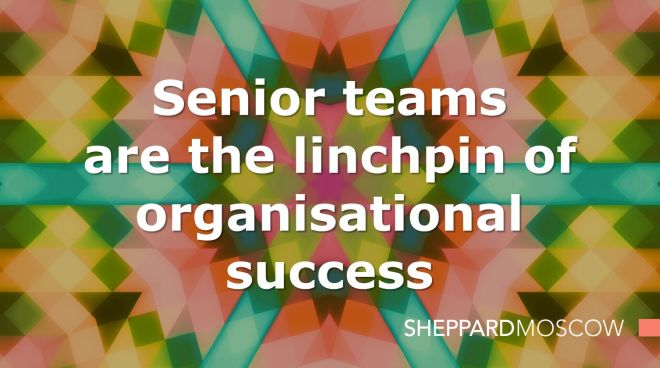Where Appreciative Inquiry can lead

For many of us, the pandemic has helped us to discover and explore in ways we may never have before – or at least forgotten the art of. Alex Marples provides a very personal insight into how he rediscovered his ‘private island’ during the pandemic – and why this is so important for leaders and teams.
I have an absolutely shocking habit of not being able to walk away from a problem. I get fixated. The habit of stepping away, taking a break, phoning a friend would be far more productive than hours wasted to find some kind of solo solution.
It was the move to virtual working which helped me free myself from my fixations. Technology has given me the ability to tap into a great team and supportive colleagues who’ve shown their willingness to show up even when we are not in the same room. I noticed a little chink of light and I am less isolated in my time of need – even if I don’t leave my house for days on end.
As the UK relaxed lockdown restrictions, the direction was: meet outdoors, no more than a few people, get some exercise. So I did.
Golf is not hip or sexy, and often carries, deservedly, a bad rap. I have had a love-hate relationship with it and allowed it to slip from my life. But in my time of need it helped move me out of lockdown fever. It’s exercise, chats with friends, and its very nature forces me to slow down, and breath. It’s a big breezy brain break quite removed from staring at screens and finding solace in YouTube. Another chink of light in an otherwise dark time.
I was doing something that filled me up rather than emptied me out. It plays a really important role in my mental health, my social health, and my general happiness. Now as we are given more and more freedoms to socialise in more traditional ways it would be all too easy to let it slip away again. But I don't intend for that to happen. I’ve discovered a little gem, it's a beautiful thing, and I intend to help it grow.
A chance inquiry (a light illuminated) whilst in the storm that was the pandemic has helped me rediscover my own private island.
From this, I take two things. There is always value in taking time to reflect on where the real breaths of fresh air are in one's daily life. And, it's usually good to get a bit intentional about making sure one has enough opportunities to take them in.
Appreciative Inquiry as the catalyst for exploration
This gem I have (re)discovered during lockdown was part chance, part necessity, part curiosity. It can help to get a bit curious, a bit intentional when seeking out the little flickers of light in a chaotic room and see if that illumination can be amplified.
Much of the work I do with clients draws on that idea – amplifying what works well (however small).
And we do this by utilising Appreciative Inquiry as a process and methodology, and as a tool that leaders and teams can adopt to spur an innovative culture. Appreciative Inquiry is all about finding ‘what gives life’ to great things in organisations and engaging teams to amplify them. It is about finding the strengths in an organisation that reveal an underlying recipe – for growth, for execution, and for innovation.
A much-simplified appreciative inquiry approach could include:
-
Listen to your people tell their stories of when things are really humming (that time we created a new product release in two days; how we built a whole virtual offer from a one-off workshop)
-
Get underneath the stories and identify the common factors that enabled those outcomes (it’s the combination of everyone being curious and great project management that seems to make things sing; we just move faster when we actually take time to stop and review)
-
Run safe-to-fail experiments to test hypotheses about how to amplify these factors – this is less about proving hypotheses, more about revealing new information to give insight into thorny issues (what happens to levels of curiosity if we set up a Reddit community?)
-
Bring your team together to make sense of the new information, expand the new patterns that are helpful, collapse those that aren’t
We work in cultures that need to be faster, fairer, more inclusive. But the place where we are really seeing inroads being made is with innovation. Tricky subject.
In this particular incidence of pandemic-forced virtual working, a downside is that many organisations have moved past the incredibly swift adoption phase, noted and banked the efficiencies brought about, and have moved on to ‘great, how can we get more?’. This leaves many leaders breathless and always reacting – rarely reflecting. When we use action inquiry, we find ways to help leaders in organisations open up the conversations about what the future could be, craft the consequential questions to which they don’t have answers, and maybe, more importantly, create a space in which they can take a breath and share those thoughts with peers. A glimpse of their own private island?
But for true innovation culture-wide, thought is not enough; there must be movement. Innovation challenges without answers need light to illuminate new insight and a group effort to amplify small things that could make a big difference. And Appreciative Inquiry is more than making people feel good. A good inquiry has the ability to drawn in more diverse, less mainstream views, to engage people in discovery, to find the flicker of light and the route to amplify it in your organisation.
So maybe there is an opportunity for leaders and teams to have a look at what they have created through necessity of the pandemic. To have another look at the things they want and need that make their work life happy and productive. And peer curiously and appreciatively into what little flickers of light that might have crystalised in the chaos and take the next step towards turning them up?
If you have an interest in the power of Appreciative Inquiry, you might be interested in this recent article:
If you’d like to share any thoughts about your own private island, please do get in touch with Alex Marples

 Alex Marples
Alex Marples 
 Aoife Keane
Aoife Keane 
